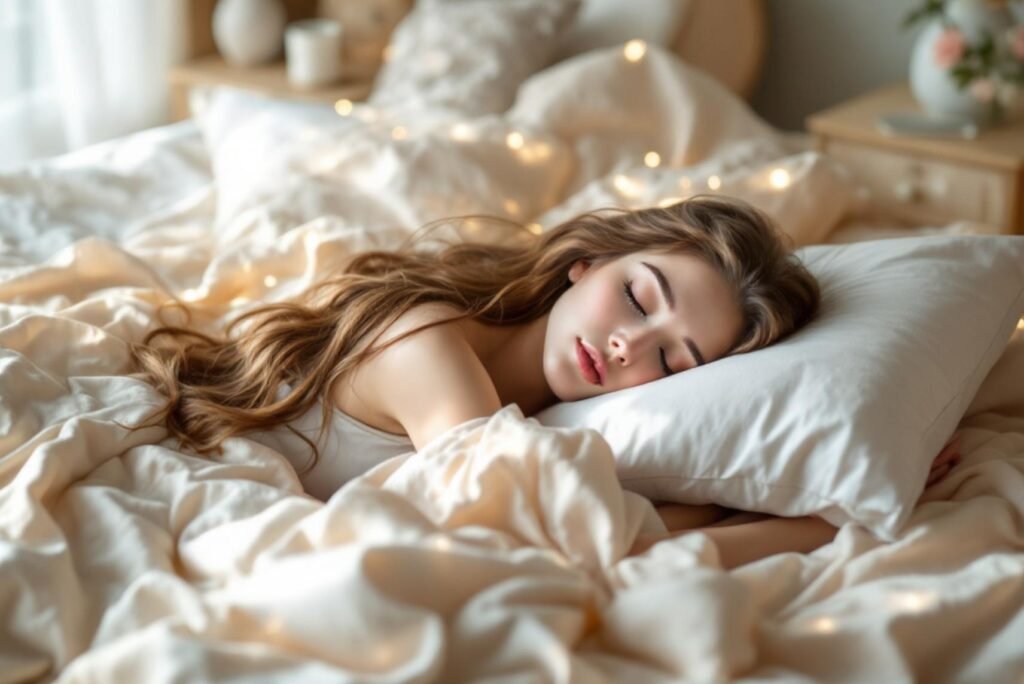Health
Simple Ways to Optimize Your Sleep for Better Health
If you want to feel more energized, improve your mood, and even support your immune system, the answer might be as simple as getting better sleep. Sleep is not a luxury—it’s a basic need that affects almost every aspect of your health. In today’s busy world, it’s easy to let sleep slide down the list of priorities, but making rest a top concern can truly change how you feel every day.
Many people struggle with falling asleep or staying asleep, and it’s more common than you might think. The good news is, optimizing your sleep doesn’t have to be complicated or expensive. A few simple changes in your daily routine and bedroom environment can make a huge difference. Let’s explore the most effective ways to get the rest your body and mind need.
Why Quality Sleep Matters
Getting enough sleep is about much more than just avoiding feeling tired. Your body uses sleep to repair itself, balance hormones, and process everything you’ve learned and experienced during the day. Missing out on sleep can lead to all kinds of health problems, including weight gain, mood swings, trouble focusing, and a weaker immune system.
A 2022 study published in the journal Sleep found that adults who get less than six hours of sleep per night are at a higher risk for heart disease, diabetes, and depression. The Centers for Disease Control and Prevention (CDC) recommends that adults aim for seven to nine hours of sleep each night.
Creating a Sleep-Friendly Bedroom
The environment where you sleep can make or break your nightly rest. Many sleep experts say your bedroom should be a sanctuary for relaxation. If you find yourself tossing and turning, it might be time for a few upgrades.
A comfortable mattress and bedding can make a world of difference. Blackout curtains are a great investment if streetlights or early sunrises disturb your sleep. Keeping your room cool—around 65 degrees Fahrenheit or 18 degrees Celsius—is often ideal. If noise is an issue, a white noise machine or a simple fan can help mask sounds that might wake you up.
Bedroom Checklist for Better Sleep:
- Invest in a quality mattress and pillows
- Use blackout curtains to block out unwanted light
- Keep your bedroom cool and quiet
- Remove clutter and keep the space tidy
- Reserve your bed for sleep and intimacy only

Managing Blue Light and Screens
One of the biggest obstacles to good sleep these days is the presence of screens everywhere. Phones, tablets, TVs, and computers all emit blue light, which can mess with your body’s natural sleep hormone, melatonin. This makes it harder to fall asleep and can even affect the quality of your rest.
Experts suggest avoiding screens for at least one to two hours before bedtime. If you can’t put your phone away, try wearing blue light blocking glasses in the evening or activating the blue light filter on your device. Also, consider putting your devices in airplane mode or leaving them in another room while you sleep.
Here’s a quick reference table for screen habits and their impact on sleep:
| Screen Habit | Effect on Sleep | Recommended Change |
|---|---|---|
| Using phone in bed | Harder to fall asleep, poor quality | Stop use 1 hour before bed |
| Watching TV late at night | Suppresses melatonin | Limit to early evening |
| Bright screens after sunset | Delays sleep onset | Use blue light filters or glasses |
Supplements That Support Sleep
If you’ve tried everything and still struggle to sleep, certain natural supplements may help. Many people find relief with herbs like lavender, chamomile, or valerian root. Magnesium glycinate is another popular option that can help relax muscles and calm the mind.
Melatonin supplements are widely used, but it’s best to talk to your doctor before starting any new supplement, especially if you are already taking medication or have underlying health conditions.
Here are some commonly used sleep supplements:
- Lavender
- Chamomile
- Valerian
- Hops
- Magnesium glycinate
- Melatonin
- L-theanine
- GABA
Remember, supplements are not a magic fix. They work best when combined with healthy habits and a good sleep environment.
Easy Lifestyle Tweaks for Better Rest
Sometimes, small changes in your daily routine can have a big impact on your sleep. Moving your body during the day, even if it’s just a brisk walk or some light stretching, can help you fall asleep faster at night. Another simple tip is to try and get some natural sunlight in the morning. Sunlight helps set your body’s internal clock, making it easier to fall asleep at night and wake up in the morning.
What you eat and when you eat also matters. Eating a large meal right before bed can keep you awake, especially if it’s high in fat or sugar. If you need a snack before bed, try something with protein and complex carbs, like a small bowl of oatmeal or a banana with peanut butter.
Here’s a comparison table for evening snacks that support sleep:
| Snack Option | Sleep-Friendly? | Reason |
|---|---|---|
| Banana with peanut butter | Yes | Contains magnesium and tryptophan |
| Chips or candy | No | High sugar/fat, may disrupt sleep |
| Oatmeal with milk | Yes | Complex carbs, calcium, protein |
| Spicy foods | No | Can cause indigestion |
Tips to Make Your Bedtime Routine Work for You
A good bedtime routine is one of the best ways to signal to your brain that it’s time to wind down. It doesn’t have to be complicated or take a lot of time. The key is to do the same things each night so your body knows what’s coming.
Some ideas for a relaxing bedtime routine:
- Take a warm shower or bath
- Read a book (preferably a physical one, not an e-reader)
- Listen to calming music or a sleep meditation
- Try gentle yoga or deep breathing exercises
- Write down anything that’s on your mind to clear your head
Even spending just ten or fifteen minutes on these activities can help you transition from the busyness of the day to a more restful state.
Frequently Asked Questions
How much sleep do I really need?
Most adults need between 7 to 9 hours of sleep each night. Some people feel great with a little less, while others need more to function at their best.
Is it normal to wake up during the night?
Waking up once or twice is normal, but if you’re awake for long stretches or struggle to fall back asleep, consider adjusting your habits or talking to a doctor.
What should I do if I can’t fall asleep?
If you can’t sleep, get up and do something relaxing in low light until you feel sleepy again. Avoid looking at screens.
Can naps help or hurt my nighttime sleep?
Short naps (20 to 30 minutes) can be helpful, but long naps or napping late in the day might make it harder to fall asleep at night.
Do sleep supplements really work?
Some supplements can help, but they’re not a solution for everyone. Talk to your doctor before trying anything new.
Why does stress make it hard to sleep?
Stress raises hormones like cortisol, which can keep your mind racing and make it tough to relax at bedtime.
How can I make my bedroom more sleep-friendly?
Focus on comfort, darkness, cool temperature, and quiet. Make your bed only for sleep and intimacy.
Does exercise help with sleep?
Yes, regular movement during the day can make it much easier to fall and stay asleep at night.
In a Nutshell
Getting better sleep is one of the most powerful things you can do for your health. Try these simple tips, see what works best for you, and don’t forget to share your own sleep hacks or questions in the comments. If you found this article helpful, please share it with friends or family who might need better rest too!


 News11 months ago
News11 months agoTaiwanese Companies Targeted in Phishing Campaign Using Winos 4.0 Malware

 News11 months ago
News11 months agoApple Shuts Down ADP for UK iCloud Users Amid Government Backdoor Demands

 News10 months ago
News10 months agoJustin Baldoni Hits Back at Ryan Reynolds, Calling Him a “Co-Conspirator” in Blake Lively Legal Battle












